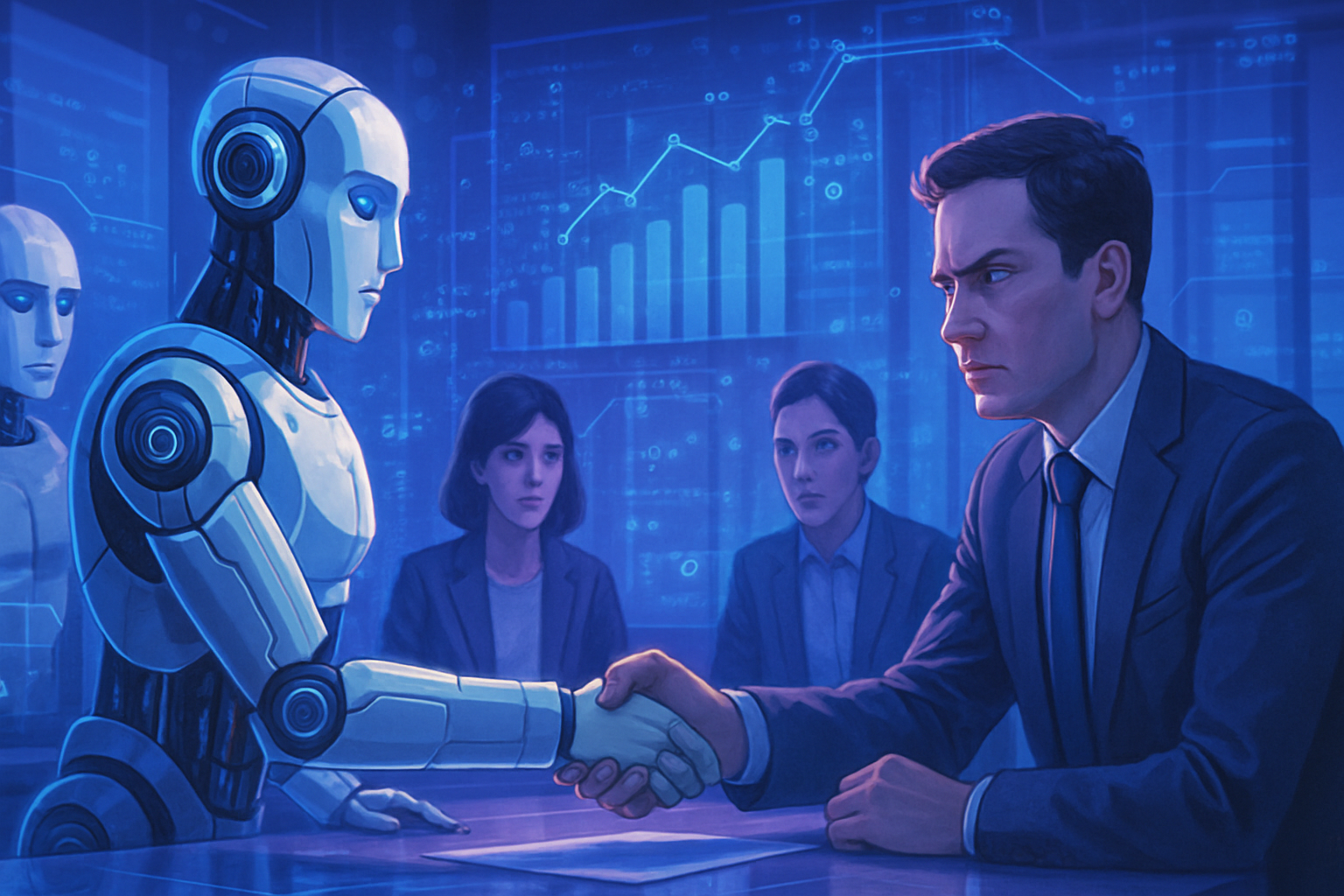Artificial intelligence is becoming an essential player in employment dynamics. This phenomenon creates a deceptive illusion in reforms and professional negotiations. The transformation of jobs brought about by this technology requires rigorous analysis, as AI does not merely assist. It reconfigures expectations and redefines the contours of work.
At the dawn of this technological revolution, companies must consider the impact of AI on career paths. Strategic decisions and social dialogues are becoming more complex, demanding increased vigilance. Skills management is evolving, integrating ethical and social issues that must be taken into account. In this context, the balance between innovation and job preservation becomes a major challenge to be addressed.
Artificial Intelligence and its Impact on Employment
The recent implementation of an agreement within the BPCE group, titled “agreement on the management of employment and career paths within the BPCE group 2025-2028”, raises questions about the integration of artificial intelligence (AI) in the employment sector. This agreement, however unanimously signed by the unions, does not focus on anticipating the repercussions of AI on jobs, which questions the future vision of employment.
A Paradoxical Agreement
Although this agreement claims to be “unprecedented” by integrating AI into professional management, its main objective is limited to value creation without considering a transformation of jobs. AI is seen as a tool for optimizing tasks, connected to banking operations, but without real consideration for the evolution of career paths in the face of digital advancement.
Artificial Intelligence in the Service of Efficiency
The BPCE group encourages the integration of AI by stating that it wants to improve the daily lives of employees while preserving work quality. AI is not designed to replace humans, but to assist them. Annie Martin-Robert, director of social relations for the group, specifies that the goal is to enhance the relational dimension with clients, thereby promoting a greater capacity for analysis.
A Sound Social Climate
The context of employee satisfaction and a good social atmosphere within the BPCE group should have allowed for a deeper reflection on the impact of new technologies. Despite this, the agreement remains cautious about the long-term vision regarding the future of jobs. The challenges related to AI ethics, highlighted by leaders, deserve a more thorough examination.
Optimization and Time Liberation
This text discusses task optimization and time liberation, concepts that seem promising but are more aspirations than realities. The absence of a clear commitment to the long-term transformation of jobs raises questions about the adequacy of technological innovations and the reality of the job market.
Long-Term Perspectives
French companies struggle to fully integrate the debate on the impact of emerging technologies on work. The hesitance to address this issue underscores a major challenge for the professional world, which must urgently anticipate the changes brought about by the rise of AI. How artificial intelligence is perceived in the coming years will depend on companies’ ability to adapt and integrate these tools while preserving jobs.
Conclusion on the Future of Artificial Intelligence at Work
In the face of a changing context, investing in robust and ethical strategies around AI becomes essential for market players. In-depth reflections are necessary to establish a balance between technological innovation and the preservation of human skills. The future of work lies in this dynamic of continuous evolution.
Frequently Asked Questions about Artificial Intelligence and Employment Negotiations
What is the influence of artificial intelligence on the job market?
Artificial intelligence has the potential to transform the job market by automating certain tasks, thereby changing the nature of jobs. However, it also creates new opportunities in innovative sectors.
How can companies integrate AI into their processes without harming employment?
Companies can ethically integrate AI by using it to enhance task efficiency while investing in employee training to adapt to new technologies.
What skills should workers develop to adapt to AI?
Workers should focus on developing human skills, such as creativity, critical thinking, and interpersonal skills, which are less likely to be automated.
Can AI really replace jobs?
While AI can replace certain specific tasks, it does not necessarily replace jobs entirely. It can rather transform existing roles, requiring new skills.
What measures can unions take regarding AI and employment?
Unions can negotiate collective agreements that take into account the impact of AI on employment, ensuring that workers receive appropriate training and protecting their rights.
How should governments respond to the impact of AI on employment?
Governments should develop policies that promote education and continuous training for workers while creating regulations around the use of AI to ensure fairness in the labor market.
What are the risks of AI in terms of discrimination in recruitment?
AI can reproduce existing biases from the data used to train it, which can lead to discriminatory recruitment decisions. It is crucial to audit AI systems to minimize these risks.
Should companies inform employees about the integration of AI?
Yes, it is important for companies to communicate transparently about the integration of AI to reassure employees, foster buy-in for change, and minimize apprehensions.
How can AI improve quality of life at work?
AI can improve quality of life at work by automating repetitive tasks, allowing employees to focus on more stimulating and enriching tasks, while reducing workload.






